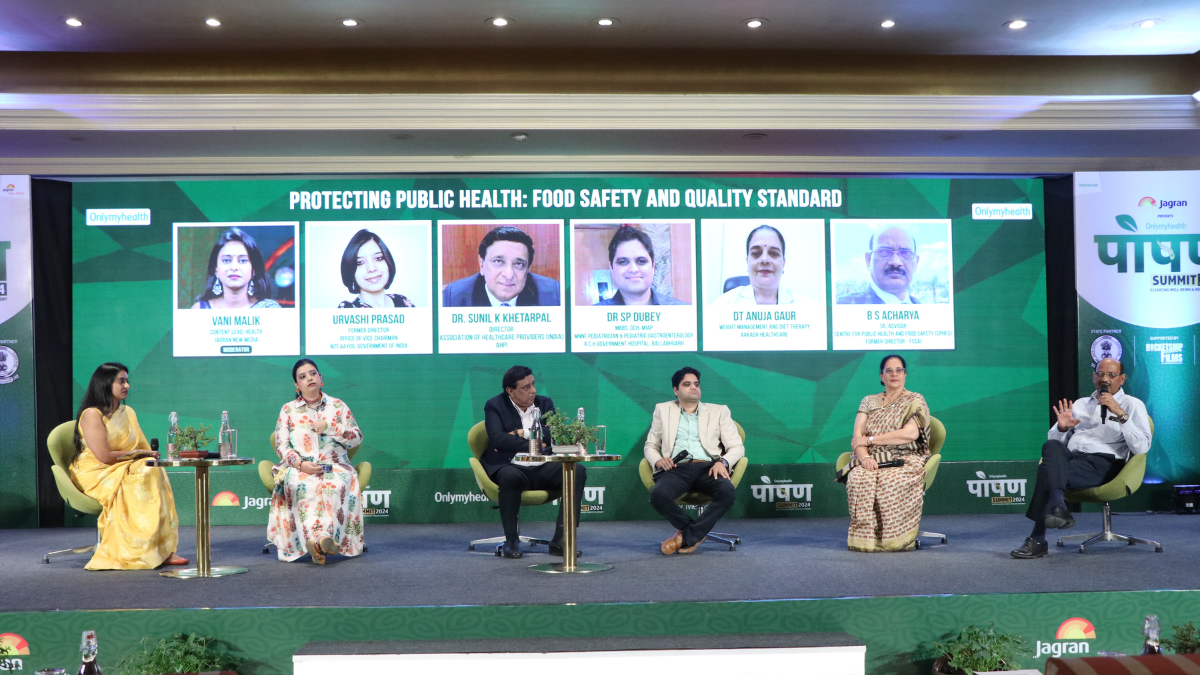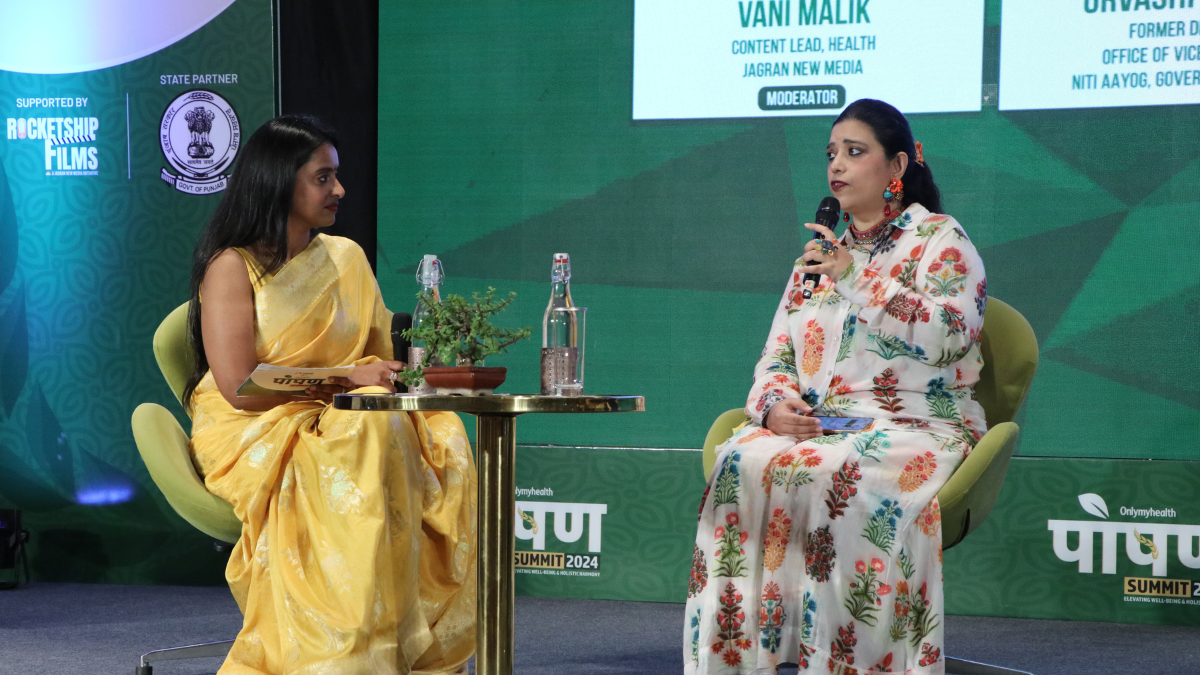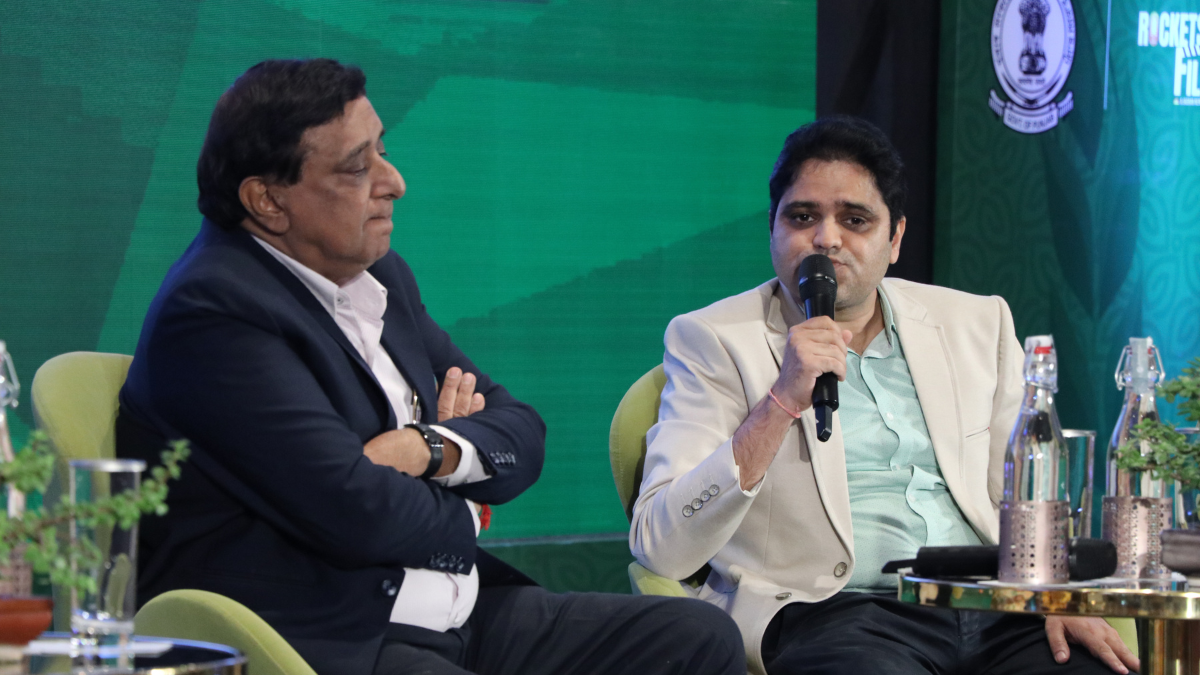
The Poshan Summit 2024 gathered experts from various fields to discuss the critical topic of food safety and quality standards. The panel featured a rich discussion on the importance of collaboration between governmental agencies, public health organizations, and food producers, and the role of public awareness and education in ensuring food safety. Here are the key takeaways from the summit.
Table of Content:-
The Importance of Collaboration
Collaboration between governmental bodies, food producers, and public health organizations is essential to maintain food safety from farm to table. Urvashi Prasad, Former Director, Office of Vice Chairman, Niti Aayog, Government of India, one of the panellists, emphasized that ensuring food safety is a multi-sectoral issue that requires joint efforts at national and state levels. The process begins right from agricultural practices and extends through the food supply chain until it reaches consumers’ plates. This system involves not only agricultural and food safety agencies but also public health departments. Setting standards is just the first step, Urvashi noted, but ensuring their implementation requires coordinated efforts among all stakeholders. This collaborative approach helps in monitoring food production, establishing quality standards, and making sure the food consumed by the public is safe.

Public Awareness: A Crucial Factor
Dr Sunil K Khetarpal, Director, Association of Healthcare Providers (India) underscored the importance of public education in food safety, stating that any successful food safety program begins with creating awareness. Public awareness campaigns, community workshops, and social media platforms can all play a role in educating consumers about safe food handling practices. The advent of technology, especially platforms like Instagram and Facebook, can be utilized effectively to disseminate important information on food safety, cooking temperatures, hygiene, and storage practices.
Also Read: Poshan Summit 2024: The Impact Of Lifestyle On Health
Dr Khetarpal pointed out that education on food safety should start early, ideally within schools. Drawing from Japan’s example, he highlighted how the country has integrated dietitians not only into hospitals but also into schools and workplaces. He emphasized that including food safety in school, curriculums would be a powerful step towards ensuring the next generation has a solid understanding of food hygiene and nutrition. Japan’s focus on teaching children about the value of food safety during meal times is a model that could benefit other nations like India, where diet-related health issues remain a significant challenge.

The Dangers of Food Adulteration
The discussion also covered the growing concern of food adulteration, which poses severe health risks. Adulterated food can cause symptoms like diarrhoea, vomiting, headaches, and even allergic reactions. Some adulterants are carcinogenic, meaning they could increase the risk of cancer, while others are genotoxic, potentially causing DNA damage that can affect future generations. Panelists stressed the need for stringent regulations and greater consumer awareness to tackle these risks. This includes educating consumers on how to identify adulterated food and encouraging them to report any suspicious food products.
Also Read: Poshan Summit 2024: Sameera Reddy on Self Love, Positive Mindset & Healthy Living
Empowering Consumers through Food Label Education
One of the most crucial aspects of food safety is empowering consumers to make informed choices. This is where understanding food labels becomes vital. Another panellist explained that reading food labels should be a skill taught at the grassroots level, especially to children. In today's world, where packaged and semi-prepared foods dominate, consumers need to be aware of the salt, sugar, and fat content in these foods. The increasing problem of childhood obesity, driven by excessive salt and unhealthy fats in snacks like chips, can be addressed by educating children about food labels.

The panellist suggested that schools incorporate lessons on food labels into their curriculums, ensuring that children understand how to make healthier food choices. By knowing how to interpret nutritional information on labels, young consumers can better regulate their intake of harmful ingredients, helping to prevent diet-related health problems later in life.
Technology's Role in Food Safety for Children
Dr SP Dubey, MNNF Pediatrician & Pediatric Gastroenterology, RCH Government Hospital, emphasized that food quality and safety are critical for the health and well-being of children. He highlighted the importance of food safety surveillance in monitoring food contamination, particularly for vulnerable groups like children. Parents, he argued, should be equipped with the tools to monitor the food their children consume and be educated about the potential dangers of artificial sweeteners, colouring agents, and microorganisms that could contaminate food. By using technology, such as apps that track children's diets and health outcomes, parents can take proactive steps to ensure their children are eating safely and healthily.
The Path Forward
As the summit drew to a close, it became clear that food safety is not just the responsibility of the government or food producers but also of the consumers. By creating widespread public awareness, teaching the younger generation about the importance of food hygiene, and collaborating across multiple sectors, a comprehensive food safety system can be achieved. The experts at the Poshan Summit 2024 agreed that while challenges remain, the path to ensuring food safety lies in cooperation, education, and innovation.
Bottomline
Poshan Summit 2024 underscored the need for a collaborative approach to food safety. From public awareness campaigns to the introduction of food safety education in schools, there are numerous avenues for improving food safety standards. Furthermore, empowering consumers with the knowledge to interpret food labels and monitoring food adulteration are vital steps to protect public health. Through collective efforts, India can aim to reduce diet-related health issues and ensure safer food for all.
Also watch this video
How we keep this article up to date:
We work with experts and keep a close eye on the latest in health and wellness. Whenever there is a new research or helpful information, we update our articles with accurate and useful advice.
Current Version
